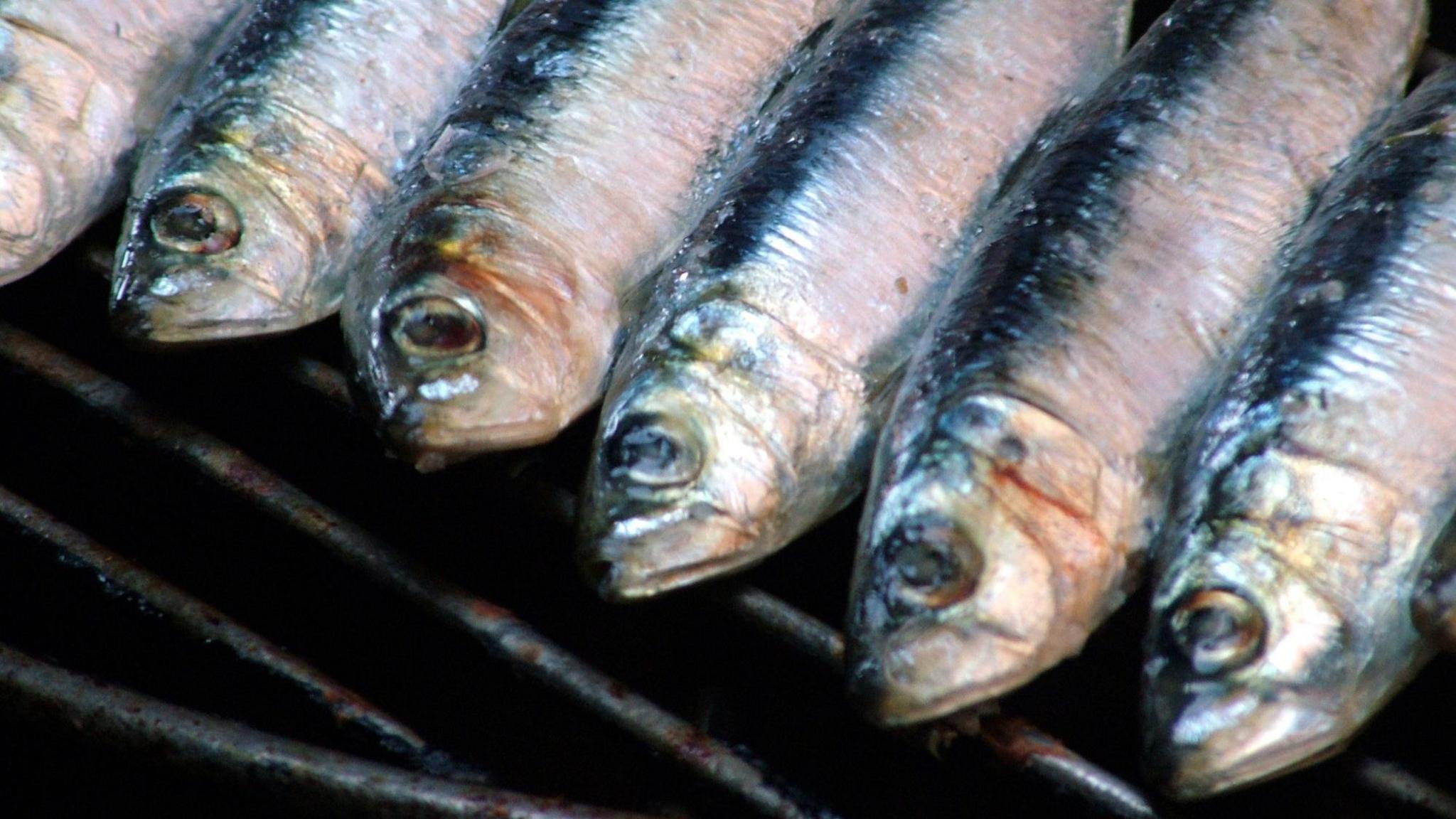Irish man seriously ill after eating Bordeaux fish

A number of people became ill after eating sardines at a Bordeaux restaurant
At a glance
An Irish man remains in hospital after eating sardines at a French restaurant
His wife, a 32-year-old Greek national, has died.
Several British and Irish citizens are receiving treatment for botulism
The French health agency said the sardines in question were homemade by the owner of Tchin Tchin Wine Bar in Bordeaux
The UK Health Security Agency and Ireland's HSE have urged people who ate at the restaurant to seek medical attention
- Published
An Irish man whose wife died after contracting botulism at a restaurant in France is continuing to receive treatment in hospital.
They were among a number of people who fell ill with the rare food-borne illness in Bordeaux after eating sardines.
Irish broadcaster RTÉ reported the 32-year-old woman, a Greek national, was discharged from hospital but subsequently died as a result of complications thought to be linked to the neurological illness.
Her husband, from the Castlebar area of County Mayo, is still being treated by doctors in France.
RTÉ said it is understood he is in a serious condition.
It added the couple is believed to have travelled to Bordeaux last weekend for Ireland's opening Rugby World Cup match.
Santé publique France, the country's public health agency, said the homemade sardines had been stored by the owner of Tchin Tchin Wine Bar in the French city.
The Irish Embassy in Paris urged citizens who ate at the restaurant and have symptoms to consult a doctor "immediately".
Allow X content?
This article contains content provided by X. We ask for your permission before anything is loaded, as they may be using cookies and other technologies. You may want to read X’s cookie policy, external and privacy policy, external before accepting. To view this content choose ‘accept and continue’.
The UK Health Security Agency (UKHSA) said it had been "notified of a small number of British nationals who ate at the Tchin Tchin Wine Bar in Bordeaux between 4 and 10 of September".
"Individuals who have been identified by the French authorities and have returned to the UK are receiving medical attention."
The statement added there "may be more people now in the UK who ate at the Bordeaux restaurant whom the French authorities have not been able to trace".
Ireland's Health Service Executive (HSE) said it was aware of a "small number" of Irish citizens who had been affected and were receiving treatment in France.
The HSE has advised anyone who visited the restaurant, and ate sardines, to seek urgent medical care if they feel unwell.
The UKHSA urged anyone who ate at the restaurant to "please contact your local Emergency department urgently and let them know that you have recently visited a restaurant with a botulism outbreak".
According to the NHS, botulism is a rare but life-threatening condition, external caused by toxins produced by bacteria which often appear when food is improperly preserved.
These toxins then attack the nervous system, and can cause paralysis. This can then spread to the muscles that control breathing.
It has an incubation period ranging from a few hours to a few days, and can be fatal in five to 10% of cases if not treated properly.
Fans in city
Bordeaux is playing host for some Rugby World Cup games, with thousands of Irish fans present in the city for the team's match against Romania on 9 September.
Speaking to news agency AFP, a doctor at the Pellegrin hospital in the French city said among patients being treated were Irish, American and Canadian nationals.
Benjamin Clouzeau added a German national and a Barcelona resident had travelled home to receive treatment for the disease.
Five of the 12 patients being treated were on respiratory support as of Wednesday morning.
What are the symptoms of botulism?
Botulism is a serious condition and treatment is more effective the earlier it is started.
Those who ate in the restaurant at the centre of the outbreak and are experiencing symptoms are being urged to seek medical attention.
Some symptoms can include:
abdominal pain
nausea
vomiting
diarrhoea
dropping eyelids
blurred or double vision
difficulty swallowing
slurred speech
breathing difficulties
There is usually no fever associated with the disease.